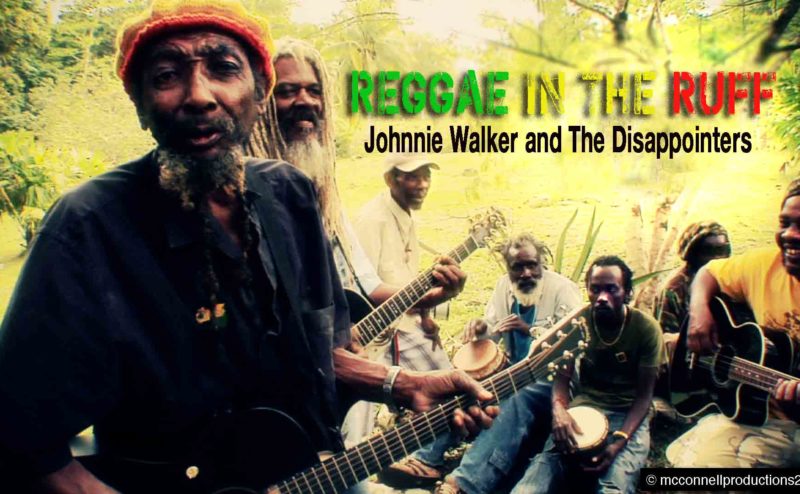
Film Festivals | Massachusetts
Salem Film Fest: Stories from Around the World
Written by Dave Walker | Posted by: NewEnglandFilm.com
Salem Film Fest, the biggest documentary festival in New England, begins today, offering more than thirty feature length documentaries, a special shorts program and a variety of forums and other events. Over the past year, the festival programmers have combed the indie festival circuit, searching for documentaries that deliver powerful stories. After pre-selecting close to one hundred films, they have honed in on a selection that they believe can’t be missed.
The final list of features, which is viewable on the festival’s website, is an impressive sampling of documentaries from across the country and around the world. For many filmgoers, this will be the first opportunity to view these films. Of the 32 films screening, six are U.S. premieres, four are East Coast premieres and more than fifteen others are either New England or Massachusetts premieres.
Seventeen films will screen with either a filmmaker or a film participant in attendance to present and conduct a Q&A session after the film. Some, like Swiss filmmaker Nick Brandestini, are traveling to the festival from overseas. He is coming for the Massachusetts premiere of his film Darwin. The film, which has already reeled in Best Doc Honors from other festivals, tells the story of an isolated community of 35 individuals in Death Valley. They live completely outside society, without any access to government, schools or traditional jobs, and stand for a rugged vision of self-reliance. As a foreigner, Brandestini has a unique perspective of these distinctly American characters. “Since I am a bit of a fan of the US, I wanted to film something here. I am just intrigued by the history of this relatively young country and the people who live here. The booming mining days of the late 1800’s and the pioneer spirit — all this stuff fascinates me,” he says.
He also mentions that he is excited about discussing the film with the audience after it screens. This interactivity between audience and filmmakers is one of the unique features of Salem Film Fest, allowing audience members to gain extra insight into what they’ve just watched and filmmakers to address questions that the films leave unanswered. “From the very beginning, we’ve tried to put together events where that can happen,” says festival organizer Jeff Schmidt. Sometimes surprising, unexpected things can happen. Last year, five student slam-poets that starred in Audience Award Winner Louder Than A Bomb attended the festival. The Q&A session after the film quickly turned into an impromptu poetry slam.
The panels and discussion sessions also give filmmakers a chance to tell their stories and inspire filmmakers-to-be in attendance to go out and make films of their own. Many of the films in the festival were self-financed productions, drawn out over several years and completed against all odds. “I’m just happy to have had the chance to make (and finish) the film. Wherever it goes after that is a much welcome bonus,” says Canadian filmmaker Tess Girard, whose film A Simple Rhythm is making its U.S. premiere. A Simple Rhythm is a medium-length experimental film exploration of rhythm, synchronization and our natural tendency to “keep in pace with ourselves.” With a background in visual art and a natural gravitation towards abstract collage, Girard sculpted the film as she shot and edited footage over the course of two years in an organic, evolving process. “It’s a film told with metaphors, rich images and dense sound design…that makes you think. I’m really happy audiences have been open to that,” she explains. “It’s a sign to me that viewers want to see the documentary form expand.”
Give Up Tomorrow also offers a model for a visionary, can-do approach to filmmaking. It tells the tale of Paco Larrañaga, a Phillipine student who was sentenced to life in prison for the murder of two sisters in 1997. On the day of the kidnapping, Paco was with his friends on a different island nearly 450 miles away and could not possibly have committed the crime. Director Michael Collins, a Shrewsbury native, had never made a film when he heard that the Phillipine Supreme Court had elevated Paco’s life sentence to the death penalty in 2004. “I was the same age as Paco and had moved to New York City seven years earlier. I thought about how much I had experienced, grown and changed during those years and couldn’t imagine how it must have been for him,” says Collins. Moved by Paco’s story, he decided he would be the one to chronicle his struggle and spread awareness for his cause. The film depicts the media circus around Paco’s conviction, exposing a corrupt legal system and deep-rooted inequalities while documenting a grassroots campaign for a fair trial. “Everything took longer and cost more than we anticipated,” says Collins of the production. “Fund raising became a major hurdle…Often we would run out of money. We lived off credit and the kindness of people who shared our sense of injustice.”
Nearly seven years later, Collins is finally bringing the film back to his home state. “I’m very grateful to finally be able to bring the film to share it with those who have been cheering me on all these years,” Collins said. Collins will also be speaking on a panel called “Documentary Filmmaking As An Activist Tool,” taking place Saturday, March 3rd. He maintains that telling a balanced story is important for a good documentary, but also emphasized that, “the very idea [for the film] came from a place of activism. I think documentaries can be effective in this way because of their power to humanize so many issues; giving audiences the opportunity to experience on a visceral level someone else’s experience.”
A Salem resident will also be sharing a film with his hometown audience. Don McConnell will be present for the U.S. premiere of his film Reggae in the Ruff, a portrait of Johnnie Walker and the Disappointers, a group of elderly Rastafarians living a secluded life as a musical troupe in Jamaica. A fusion of anthropology and music documentary, the film sets a soundtrack of live roots jamming against a beautiful mountain landscape. It is the story of a group of ‘Dreads’ on a mission to produce their first album and bring their unique philosophy to the world. McConnell spent months living amongst the group, gaining their trust and getting familiar with their way of life. “I think I surprised the band by how little I actually pulled out the camera. I really took my time to absorb the whole vibe,” he recalls. Despite the obscurity of his subjects, McConnell believes the film has relevant, universal themes. “Especially after the collapse of our financial system, people are looking for smart, simple, natural answers on how to live a meaningful life. It’s an ode to positive, natural living. Sadly I think it is a film that people will look at in fifty years to perhaps view a lost culture.” Festival attendees can get a further taste of this rare culture at a CD release party on the final night of the festival.
Other special events will take place over the course of the week. New festival sponsor American Cinematographer Magazine will be hosting a forum on March 4th entitled “Reframing Reality” at the Peabody Essex Museum. The forum explores the artistic and technical challenges of documentary shooting and will feature two celebrated documentary cinematographers Buddy Squires and Ellen Kuras. The magazine will also present the festival’s first ever award for Best Cinematography.
On March 3rd, the Alliance of Women Film Journalists (AWFJ) will host a panel discussion on the way the media covers documentary film. Women directed more than half of the films at the festival this year, the highest percentage in its history. The AWFJ will present the festival’s first-ever Best Female Director award. In an interview with Gordon College News Service, festival organizer Paul Van Ness said, “We didn’t set out to bring in women filmmakers, but it’s a reflection of the evolution in the film community towards a more balanced view of the world.”
Many female filmmakers believe the high representation of women filmmakers is an anomalous, but encouraging sign. Vivian Ducat, whose biography of African American artist Winfred Rembert opens the festival tonight, is a veteran of the radio and television industries. She compares today’s TV and film industries to the more progressive radio world of the 1970s where more attention was given to women’s achievements and feminism: “I got into TV and it was a shock. TV was definitely more hierarchical — dominated by male cameramen and male executives…and the PA’s were these really strong and smart women…I was made to carry bags, do the clapper board and type the scripts. That changed a bit, but the fact that this stratification existed and persisted really disturbed me.” She believes that filmmaking is not ultimately about rigidly defined roles, but hinges on a more fluid exercise in interpersonal communication. In piecing together Rembert’s memories of growing up in the segregated South, this proved to be her most valuable asset as a storyteller. “It took a long time to win his trust…Almost a year from when I began. That was particularly hard…”
With three new awards, new sponsors, and distributors flocking in to get a taste of the best in independent documentary, Salem Film Fest has reached maturity. Its steady growth has thrived on a festival model that benefits from a strong relationship with the Salem and North Shore community. Running on an invite-only format, Salem Film Fest brings in local businesses to sponsor films of their choice for $300, which goes to the filmmakers as an honorarium. Rather than being charged a submission fee, they are compensated for their work. Needless to say, the festival is popular among filmmakers who know it for its generous reputation. Major sponsors include The Peabody Essex Museum, Rule Boston Camera, Salem Waterfront Hotel and Suites, and 92.5 FM The River, but more than thirty local businesses have gotten involved.
This unique model also lets the festival organizers sculpt the experience for its audience; each film on the program has been hand picked from hundreds of possibilities. The result is a festival that is literally bursting at the seams with vibrant, heartfelt films. The organizers have created a forward thinking program while ensuring that the festival remains an extension of Salem’s heritage — a rich history as a port town known for bringing goods from all over the world to the state of Massachusetts.
Taking this legacy as inspiration, Salem Film Fest strives to bring in a sampling of international and foreign features. “Part of our approach in seeking out films has been keeping an eye on what the international documentary community is producing and looking for films that haven’t been seen in the U.S. We actually have six U.S. premieres this year, which is a big step for us,” said festival organizer Jeff Schmidt. At the same time, Schmidt believes in Salem Film Fest’s identity as a homegrown festival with a deep commitment to its community: “We certainly take pride in the fact that the Salem community has embraced the festival. We’d love to get national recognition as well. As long as we feel like we are true to ourselves in terms of telling great stories without compromise, then the festival will hopefully flourish and people will come up to Salem and see the world.”
To find out more about the festival, visit their website: salemfilmfest.com/2012/.












